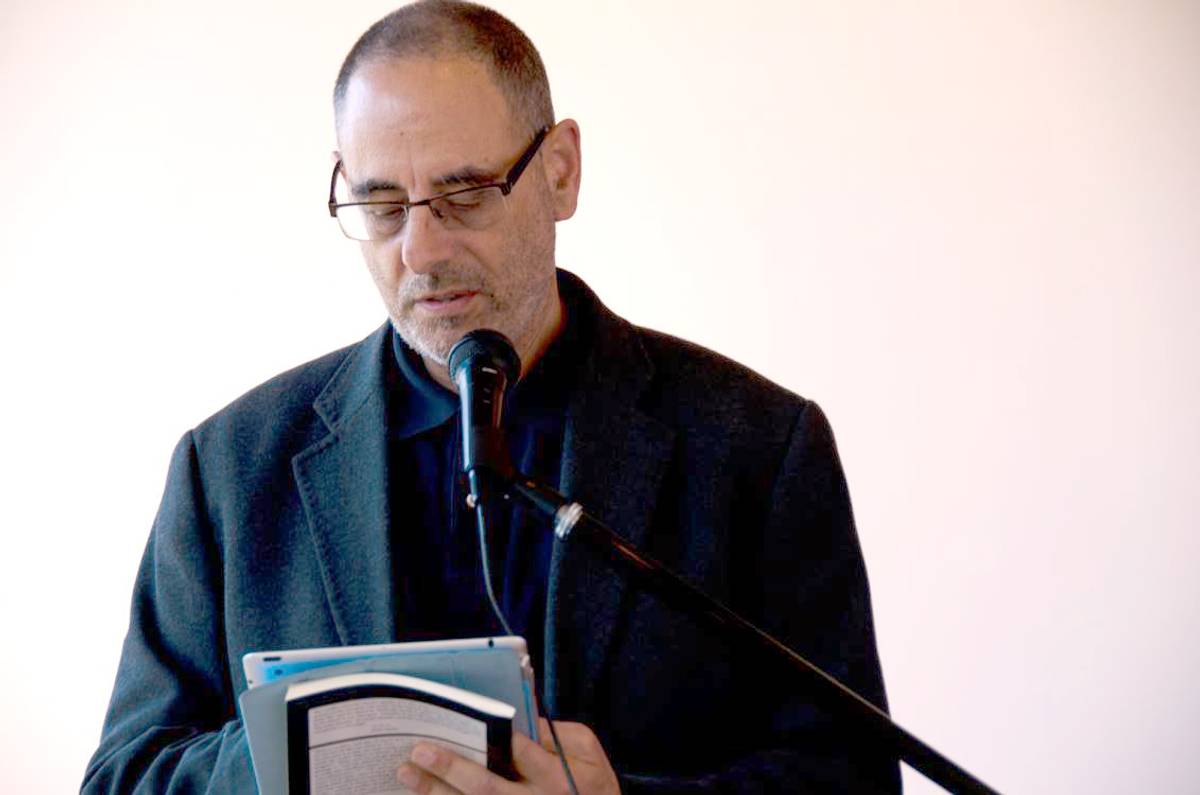Poems of Mystical Experience
Norman Fischer’s latest work is a relentless attempt to understand what it means to be alive



Norman Fischer’s Selected Poems, published earlier this year by Chax Press, covers three decades and nearly a dozen books of profound and playful observations on the nature of language and meaning-making, spirituality, and contemplation. Sometimes casual and ironic, other times dry, the poems are relentless in their attempt to understand what it means to be alive, struggling to describe our inner worlds.
In addition to being a poet, Fischer is also a Soto Zen priest, who, for a time, served as co-abbot of the San Francisco Zen Center. He is also a co-founder of the Jewish meditation center Makor Or. Reading the collection, I was reminded of what Norman told me when I came to visit and interview him, on assignment from Tablet, in 2017: “It is through fully situating myself within language that this world, the true world, a real human world—and beyond human—occurs. Language itself is the mystical experience, if you will.”

The two poems selected below depict precisely this sort of mystical experience. The first piece, originally published in his collection Success in 2000, was part of a project in which Fischer wrote a poem every single day. Here, in the four opening lines, he points to a peculiar conception of poetry: as a path backward in time—a retrospective, contortionist unwinding. From there, the poem demonstrates just how that happens, with philosophical insights packed into colloquial diction, sprinkled with a healthy dose of ironic self-deprecation.
The second poem, “Pardes,” originally appeared as a part of a larger composition, “Light(silence)word.” It offers a reimagining of the medieval kabbalistic concept, which asserts that sacred texts contain four layers of meaning, each increasingly more esoteric than the preceding ones. The poem attempts to describe these four levels using natural and sensory metaphors. The result is such that, on the one hand, a rather complex doctrine of Jewish mysticism appears far more comprehensible, presented with images and terms that don’t demand decades of scholarly preparation from its readers. On the other hand, after reading a poem like this, it feels that even the simplest encounters with a text are mystical, inscrutable, or as Fischer himself put it, a “meaning pressed only into breathing.”
Monday, 19 March
Working backwards
From where the road signs show
A direction
Opposite to the one you’re going in
Trying to explain to Monjuvajra
How poetry works and what it’s all about
I realize I haven’t a clue about
What I’m talking about and he
In his sincere and warm way
Taking it all in, trying to understand,
As though it made some sense
This is a confession, Monju:
I really don’t know what I’m talking about
A wonder I’ve gotten this far
Never moving
From the place where I began
But then my job isn’t
To know or explain anything
My job is...
I forget what it is
But isn’t probably something
Worth doing
Though knowing what it’s worth
Isn’t my job
Heart’s a sea
Flows back and forth
Always moving
Never going anywhere
Pardes
The trees bear fruit, the book
Binds
Like water brimming in the pitcher’s
Poured out steady till no drop’s left
By a firm hand, an outstretched arm,
The book bears them on through the storm
Tree tops twisting, stripped debris shattered
In the violent nights
Though the fruit’s sweet lingers on the tongue
Like melody—
That’s the plain meaning
Beyond that and embedded in it
Like seeds in a winter earth
(Officially only a thin layer
Atop a hard dark mystery below
Exactly as deep as the plow turns)
The meaning-fingers splayed forth
Like hairy roots laterally
Entangling other letters, heterodox tales, bits and strands
(The third level now)
Of lives, songs, opinions, certainties
Wild stories, rewordings, revisions
Attempts to harmonize or humanize
Upheaval, sickness, fierce mistaken force
The worm in the infinite, how sky
Reflects the turmoil of the sea
The soul’s own sequential poisoning
In its reversing desire to crawl out
Of its own skin, like the famous snake
That spoke for it in the orchard
That had no hands to touch with, to grasp
Then the inner turning
The quiet of snow falling on rock and twig
With a hush beyond speculation and thinking
A meaning pressed only into breathing
Or illuminated by the speechless waters
That suck underground
Into the capillary rootlets opening beneath the feet
In the winding uncharted journey of footsteps
From one point of darkness to the next
Jake Marmer is Tablet’s poetry critic. He is the author of Cosmic Diaspora (2020), The Neighbor Out of Sound (2018) and Jazz Talmud (2012). He has also released two jazz-klezmer-poetry records: Purple Tentacles of Thought and Desire (2020, with Cosmic Diaspora Trio), and Hermeneutic Stomp (2013).